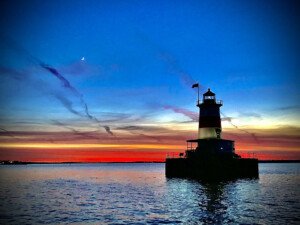South Boston’s Old Colony Housing Project Is Being Reborn
To understand the dramatic changes that the South Boston neighborhood has undergone during the past several decades one only need visit the Old Colony public housing project, where on Thursday, Mayor Marty Walsh celebrated the completion of its second phase of redevelopment.
For much of Old Colony’s history, the 70-year old housing development was—how to say it nicely?—ugly as hell. Its 845 apartments were sprawled across 16.7 acres of land, 22 three-story brick buildings that looked forlorn even on a bright, sunny summer afternoon. The pathways, while always clean, were barren, with patches of grass scatter here and there, but mostly just plain dirt, inexplicably blocked off by chain-link fences and dumpsters all over the place. If you wanted to see living proof of the failure of our country’s public housing policy, here it was.
Fortunately, those days are a thing of the past. Using a mix of local, state, and federal funds, the entire Old Colony project has been torn down and is in the process of being replaced with new and attractive housing. Phase I of its redevelopment was completed in December 2011. It included the demolition of seven buildings and 164 existing apartments and the construction of 116 new affordable rental units and a 10,000-square-foot learning center. The just-completed Phase 2 involved the demolition of the remaining 223 apartments and the construction of 169 new income-restricted units. Another 40 apartments will be completed during the coming year. Phase 3 will include another 350-450 units, which will be built once funding has been secured.
Loose Whitey Bulger ties aside, Old Colony’s most notable resident was probably writer Michael Patrick MacDonald, who lived there with his mother and nine siblings in the 1960s and 1970s, which he famously wrote about in his memoir, All Souls, A Family Story from Southie.
It’s hard at first to not consider MacDonald’s story a tragedy. Three of his siblings were dead by the age of 24, victims of crime, murder and suicide; a brother died just three weeks old. One of his sisters was pushed off the roof of an Old Colony building leaving her in a coma for six months. The family lived in poverty, in a crime-ridden project that was literally falling apart around them, in an apartment infested with cockroaches. He writes that Boston cab drivers wouldn’t even go into the project; it was considered that unsafe. On top of that, he and his family had to suffer through the city’s busing crisis, something he witnessed first hand.
But, there were also plenty of good times in the MacDonald household. His book is full of stories about his mother raising him and her other children—oftentimes, alone—while facing enormous challenges and difficulties. You realize that Old Colony isn’t about the buildings—it never has been—it’s about the people. For the thousands of residents of Old Colony over the years, it’s been called home.
Like Old Colony, much of the South Boston neighborhood is unrecognizable these days. There are apartment and condominium developments going up on practically every corner. New stores and restaurants are opening, including the Lincoln Tavern and the neighborhood’s first Starbucks. Mostly, long-time residents have taken all of this in stride, but there is of course bubbling resentment that “outsiders” are coming into the neighborhood, increasing density and congestion. Sadly, the changes have not trickled down to improve the neighborhood for everyone: South Boston still has a persistent drug and crime problem.
The South Boston of today is being populated by new residents who are accused of not wanting to be a part of the neighborhood, of not seeing what’s going on around them, of the lives lived by generations of Southie families. That’s the real-life story of the neighborhood; it’s not some Hollywood make-believe.
Below, a Tufts University professor provides video of the Old Colony neighborhood while giving an audio tour.
https://www.youtube.com/watch?v=LQ8Ldyt3WZE


